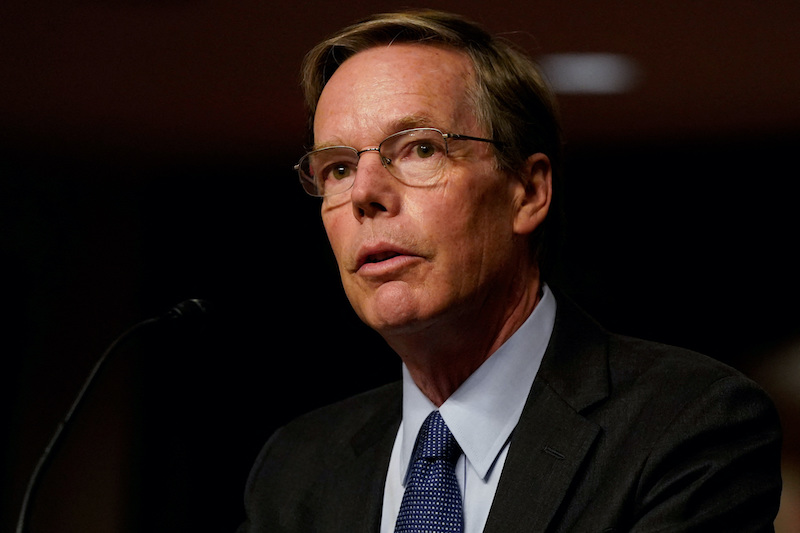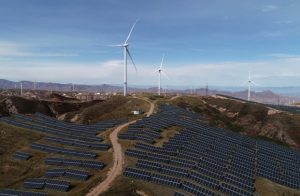US Ambassador to China Nicholas Burns finally snapped this week and made a strong and very public complaint about China’s “interference” in events organized by the US Embassy in Beijing.
Burns said Chinese officials had interrupted dozens of events arranged by the embassy since last November, when Presidents Joe Biden and Xi Jinping met in San Francisco and discuss ways to mend strained bilateral ties.
Burns told the Wall Street Journal that Beijing was making people-to-people exchanges between the two countries “impossible.” It was a claim that drew a lot of attention around the world, but on Wednesday Beijing simply dismissed it.
ALSO SEE: Vast Amount of Rare Metals Found Off Remote Japanese Isle
Guests blocked, intimidated
In a note to subscribers on Tuesday, Jonathan Cheng, the Journal’s China bureau chief, explained how this happened:
“Earlier this month, Burns hosted an event at his residence in Beijing, inviting a number of Chinese nationals. Burns learned that some invitees were warned by Chinese officials against showing up. Others found themselves turned away at the door by Chinese security officers standing guard outside,” Cheng said.
“While this has been happening for years, Burns wasn’t in the mood to brush it off that evening, telling assembled guests that he was upset about the restrictions and would complain, publicly, to his hosts.
“He did more than that,” Cheng went on. “In an interview with me late last week, he tallied up 61 instances of US diplomatic events that had either been disrupted by Chinese authorities, or where they had interrogated or attempted to intimidate invitees.
“What was more striking, Burns said, was that this is all happening after the San Francisco summit meeting in November 2023, where President Biden and Chinese leader Xi Jinping agreed to bolster people-to-people ties.
A ‘contradiction in their system’
“Despite that understanding, Burns says the room for ordinary Americans and Chinese to engage has only narrowed since November, with Beijing intensifying attempts to undermine US diplomatic efforts in China.
“We don’t tell American citizens, you can’t go to this Chinese embassy event in Washington or a consulate event in Los Angeles,” Burns said in our interview. “We wouldn’t dream of doing that to an American citizen. They do. And they do it routinely.”
Some of the interference was ‘comical’, Cheng said. At a Beijing venue where the US Embassy recently tried to stage a public concert, officials claimed that the event couldn’t proceed because the power was out.
They also opposed a celebration planned by the US consulate in the northeastern city of Shenyang to mark four decades since its re-establishment in 1984, Burns said.
“The Chinese objected to the Americans’ claim that they had even ‘re-established’ their consulate there. The Americans had chosen that word to reflect the fact that the US first set up a consulate in Shenyang in 1904, when China was still ruled by an emperor and the city was known as Mukden, before it was shuttered in the wake of the Communist victory in 1949.
“Burns says the Chinese were upset enough by the ‘re-established’ wording that they impounded promotional literature and, for the anniversary event itself, sent a pair of low-ranking officials.”
Burns, he said, felt there was a “contradiction built into their own system”— a need for openness and investment on the one hand, and for geopolitical and ideological vigilance on the other.”
Envoy’s remarks ‘not true’
On Wednesday China’s foreign ministry described the US envoy’s comments as “far-fetched” and said they deviated from key understandings reached by the presidents of both nations.
“It is not in line with the correct way for China and the United States to get along with each other and is not conducive to the healthy and stable development of bilateral relations,” Foreign ministry spokesperson Mao Ning told a regular briefing.
Referring to the presidents’ meeting last November, when Xi and Biden discussed issues that strained ties, Mao said: “Ambassador Burns’s remarks are not true and deviate from the important consensus reached by the two heads of state.
“China has always developed its relations with the United States in accordance with the principles of mutual respect, peaceful coexistence and win-win cooperation put forward by President Xi Jinping.
“It is committed to promoting cultural exchanges between China and the United States.”
- Jim Pollard with Reuters
ALSO SEE:
US Review of Chinese Telecom Firms for Internet, Cloud Risks
Canada Mulls Import Tariffs on Chinese EVs as Pressure Builds
EU And China Agree to Negotiations on EV Tariffs, Minister Says
Chinese Carmakers Call For 25% Retaliatory Tariffs on EU Cars
China’s Probe Into EU Pork ‘Dumping’ Seen as Trade Retaliation
Biden Ramps US Tariffs on Chinese EVs, Metals, PV Cells, Chips






















